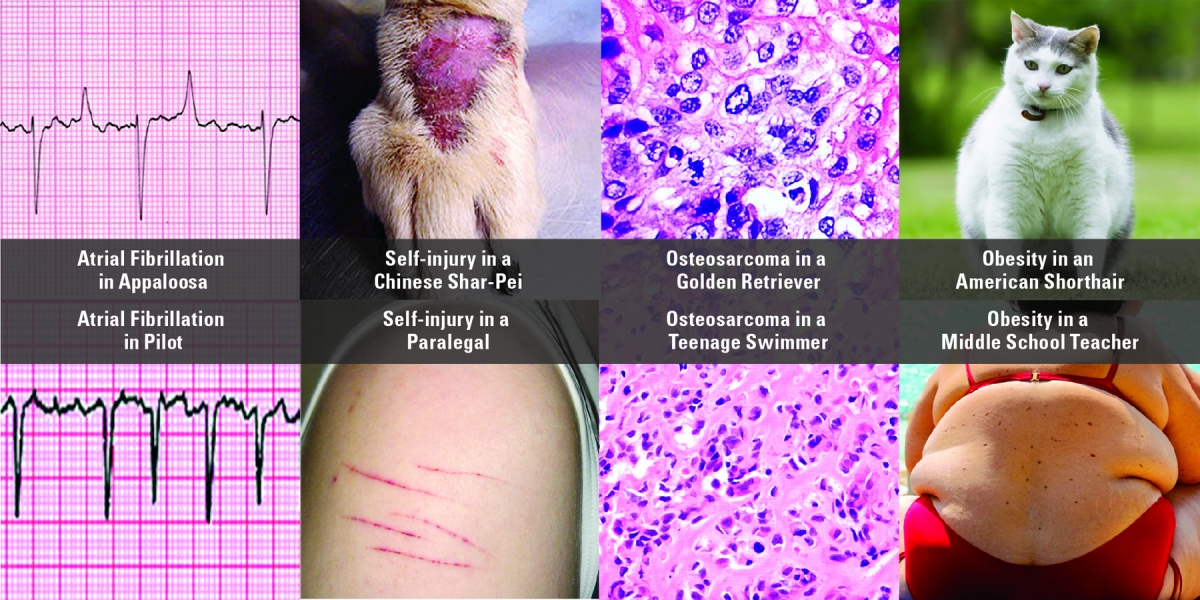
Barbara Natterson-Horowitz, M.D. (David Geffen School of Medicine at UCLA)
Kathryn Bowers (UCLA)
When it comes to mental health and illness, humans are not unique. Veterinarians see and treat a variety of behaviors that human psychiatrists call disorders when they see them in their patients. Vets see anxiety and compulsive grooming in cats, birds, and reptiles, and self-injury in mustangs, parrots, and dogs. Gorillas and beluga whales can experience clinical depression and even eating disorders. Reindeer seek narcotic escape in hallucinogenic mushrooms, while waxwing birds and Tasmanian wallabies go after mind-altering berries and flowers. Mares can become nymphomaniacs and stallions and lemurs can experience psychogenic sexual dysfunction. Even bullying, suicidality, and dementia have animal correlates that surprise and inform psychiatrists.
A “zoobiquitous” approach brings together human medicine, veterinary medicine, and evolutionary biology to better understand the nature and evolutionary origins of mental health and illness in contemporary humans.

This event is co-sponsored by:
- The OSU Center for Ethics and Human Values Innovation Group
- The OSU College of Veterinary Medicine
- The OSU College of Medicine
- The OSU Public Health Preparedness for Infectious Diseases (PHPID) Program
The Public Health Preparedness for Infectious Diseases (PHPID) initiative is a unique cross-disciplinary research partnership created in 2005 as part of a charge from the university's Office of Academic Programs. PHPID is a collaboration of all of the university colleges with a mission of protecting the public from infections and reducing the risks of infectious diseases. More than 160 faculty across the university contribute to this initiative, working together in outreach, education, development, application and research to solve the world’s infectious disease issues. The PHPID program faculty translates scientific discoveries into clinical applications, detects the presence of emerging infectious diseases within communities, prevents human infection from zoonotic organisms, addresses food safety issues, educates the community about infectious disease issues and trains professionals to protect the public.



